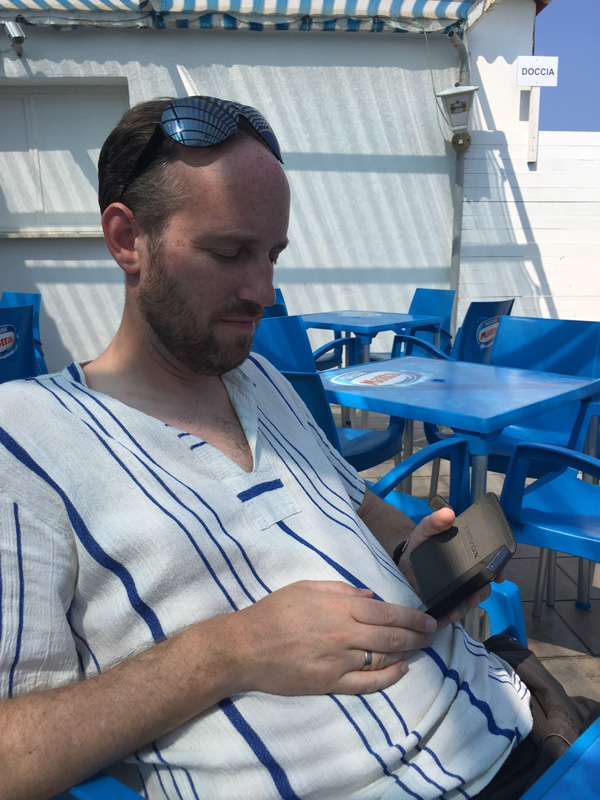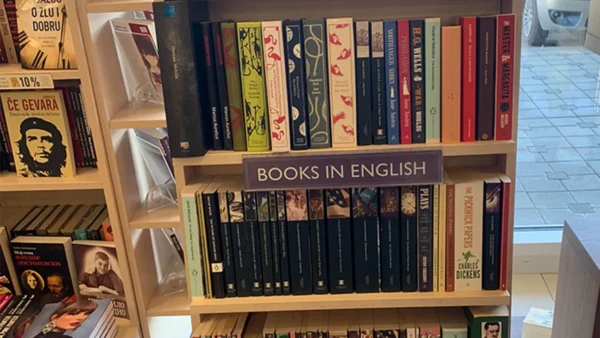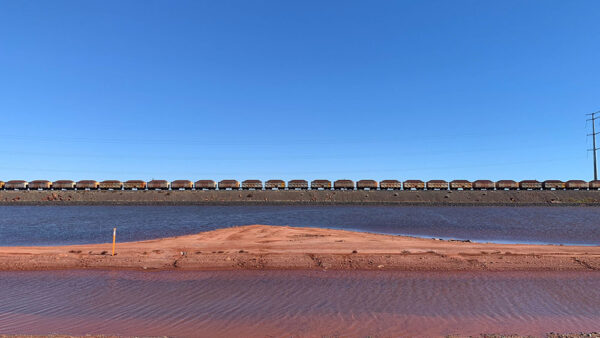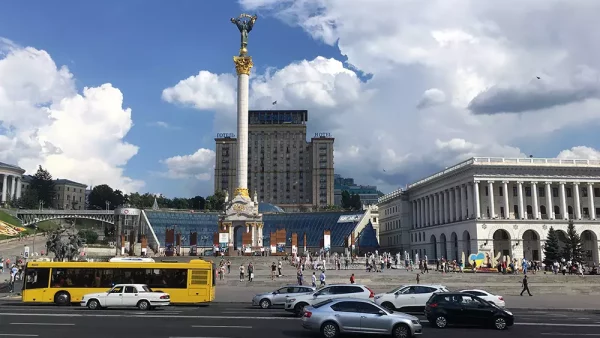Remember when you used to go on holiday and completely lose track of what was happening back home?
In the days before the internet and widespread satellite TV, the only way to get news from your home country was to buy an overpriced newspaper that was a few days out of date (if you could even find one). You could get news, of course, but it was from a local perspective, and it showed you how different people’s priorities can be. Unless your home country was at war or experiencing a natural disaster, it probably wouldn’t feature. Instead, you’d watch or read about a whole different set of issues.
If it had been long trip, you’d come back home and experience some dissonance as you came across references you didn’t understand to events you weren’t aware of. It would take some time to readjust to life back home.
There’s something healthy about that, I think: both the opportunity to escape from your own concerns for a while, and the chance to learn about someone else’s, to see the world through their eyes.
Travelling but not travelling
Now, it’s very different. We carry our devices everywhere with us, and we read the same news we could get back home. When we put them down, we have televisions offering us 24-hour news from CNN, the BBC, France 24, Al Jazeera, RAI, Deutsche Welle, and so on and on and on. We’re connected to home all the time. We’re travelling in the body, but our minds are often tethered to home.

So I’ve spent the past couple of years travelling around in a strange kind of dual reality. I’m sitting by a Norwegian fjord or a Saharan sand dune, and I reach for my phone in an idle moment, open up The Guardian, and read what crazy thing Theresa May just said about Brexit.
It’s good to keep up with news back home, of course—particularly big things like Brexit. But I don’t really need to be quite so deeply in touch. I could read a summary once a month, and that would be enough.
The cost of always being connected
And the cost of keeping in touch with news in the UK is that I’m not completely immersed in the place I’m visiting. It’s not just about news, either—having dozens of books stacked up on my Kindle and being able to download an unlimited number of extra ones means that I’m less likely to go to a bookshop and find some local literature. Having access to so many familiar movies and TV shows online makes me less likely to head out into the streets and find a local cinema showing a local movie. And then, of course, there’s social media…

In short, I’m here but not here. I see one world in front of me, and another on my phone and computer. As I said, it’s not all a bad thing. Keeping in touch with friends and family is great, and so is having access to news and books from all over the world, wherever I am. I make my living online, so I’m not going to be disconnecting any time soon. But I do think there’s something important about being truly immersed in one place, and that we’re losing something by being perpetually connected to something other than what’s in front of us.

What do you think? Do you take your devices with you when you travel and stay connected to life back home, or do you prefer to cut the cord?



There are 8 comments
Hi Andrew!
When I’m at my desk working, I’m ultra-connected. Twitter, Facebook, blogs, Google – everything the internet can serve up to me. But when I leave my house, I leave all that behind. At first it was simply a matter of economics – I couldn’t justify the cost of a phone that would keep me connected to all that. I hvae a phone, but it does only phone calls and texts. Now that smart phones and tablets are much cheaper, I could get one. But I know I’d use it all the time, seductive as that online life is. And I prefer to spend some time in the real world – or as real as a writer can manage as there’s always a piece of writing running as a subroutine. The getting away is important. Few things are so urgent that they can’t wait a few hours for me to get back.
I was thinking about this recently when I went on a weekend trip with my husband. I had to borrow a tablet to briefly check my emails, and immediately the online clamour was back. An inbox bristling with things to check and do. I realised there’s being connected, and then there’s being tethered – words you actually used in your piece. I like to be connected, but sometimes I like to slip the tether.
Hi Roz, I like that approach! One of the problems, I think, is a lack of clear boundaries between work and non-work. It sounds as if you have a better balance without a smartphone or tablet. That might help me: do my work, and then go out into the world and experience it without distractions. Thanks 🙂
A wonderful piece, Andrew. Your picture at the bottom brings me back to a time in the not-so-distant past (summer 2003) when I was in Estonia for several weeks. I remember having to really plan out the times I’d be online. I had no smartphone and a laptop that wasn’t WiFi enabled, so when I wasn’t headed to one of Tallinn’s internet cafes (remember those?), I was disconnected. And it was wonderful.
I often think I got lucky by spending so much of my time traveling and studying abroad before these devices became so ubiquitous. What would that time have looked like had I been always connected with an iPhone? Would I have learned another language, fallen in love and married, and really seen anything beyond my world back home? I like to think I would have, but I often fear that I wouldn’t have. And I fear for young people today who have the same opportunities to study abroad and travel that I had but who are quite possibly missing out on so much.
Thanks, Adam! That’s exactly what I was trying to get at. Yes, maybe you would still have had some of those wonderful experiences if you’d been live-tweeting the whole trip, but maybe you would have missed out on some of them. I’m certainly conscious that every hour I spend on the internet is an hour I’m not really spending in Morocco, Spain, or wherever I am at that time. I remember pre-internet trips when the sense of disconnection and dislocation was palpable. When I came back to the UK after a month in Peru in the mid-90s, it was really quite disorienting. I never get that sense these days. Thanks for commenting!
When I go away for work (I’m a tour guide) I don’t take an internet device with me, usually. I don’t have time to check anything. I have sometimes taken a tablet but usually there’s no time to use it, or I get to a hotel at midnight and am too tired to go down and ask for the wifi password (or remember how to ask that in whatever language I’m needing that day). There is dissonance when I get home but it’s refreshing to be away from the clamour for a while. I’m resisting a smartphone because my dumb phone has almost a week’s worth of charge, so much more practical to use when all I need is to make texts or calls and receive them.
Hi Viv, that sounds like a good way to travel. And you’re definitely right about dumb phones having a LOT more charge! It’s funny how I travelled for years without needing the internet, but now I am so dependent on it for finding my way around a town, booking hotels, finding a place to eat, and so on. I would manage without it, of course. It would be less convenient, but maybe I’d have more spontaneous experiences and more contact with local people from asking them instead of Google! And, as you say, very refreshing 🙂 I’ll try to disconnect more often!
I hide from the worries of the world regularly. My husband complains about it, but I have to do it for my sanity. I think I must have a very old soul, I just cant take the bombardment. I was forced to join the electronic word because I do want to sell my books, but even then I know I am not making a good enough effort. Travelling or not I tune out.
I have a brother in law who has lived in England for thirty years, he telephones me a lot (now we face time and I hate it, I have to comb my hair) he knows more about what is happening in Jamaica than I do.
I know what you mean about the bombardment, Jennifer. I find it hard to manage sometimes too. I like to stay in touch with events and be engaged with the world, but constant immersion doesn’t seem healthy, and I don’t think it makes me more informed either. I usually find that reading a couple of books on a subject leaves me much better informed than reading hundreds of tweets and minute-by-minute news updates. Sometimes you need to step back to get the right perspective. I hear you about the electronic world too. It can be way too much. I’m very glad you stick around in my little corner of it anyway 🙂